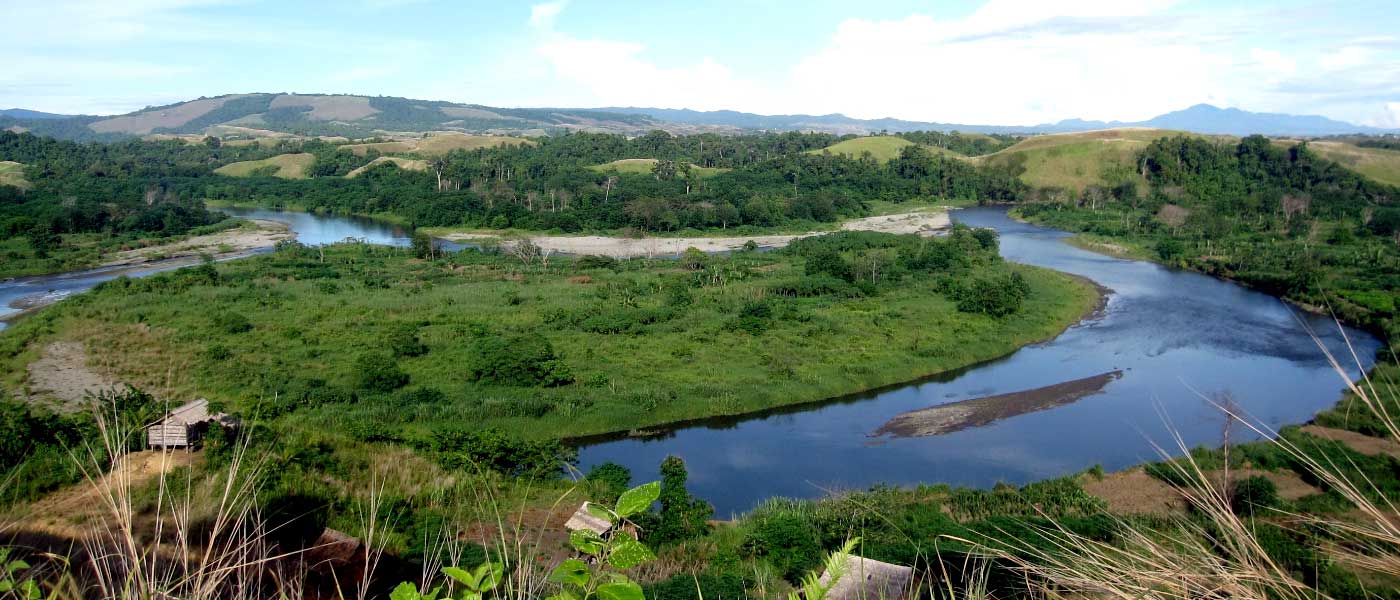How we should treat refugees

How we should treat refugees
Opinion + AnalysisPolitics + Human Rights
BY Simon Longstaff The Ethics Centre 10 SEP 2015
It may seem harsh to question the heartfelt public response to the image of toddler Aylan Kurdi lying dead on a Turkish beach. However, the motivating force of compassion can easily be reduced to futile gestures, unless it is spliced onto a set of actionable principles that will endure beyond the first wave of sympathy.
Then prime minister Tony Abbott’s 2015 announcement that Australia would permanently resettle an additional 12,000 Syrian refugees was a significant response to the mass exodus of asylum seekers. But we should assess the quality of Australia’s offer against a solid foundation of principles.
In this case, those principles are the institution of sanctuary or, in its modern guise, asylum. Using this approach, I would suggest that asylum is fundamentally about the public and personal good of human safety. As such:
- Those who meet the objective condition of fleeing from persecution and oppression, whether arising in conditions of peace or war, are entitled to seek asylum. Their claims for asylum may never be deemed as ‘unlawful’ or ‘illegal’. To apply these labels to such people is wrong and involves a profound misunderstanding of the law.
- The ways in which people seek asylum may, in some circumstances, be illegal. However, that does not make the asylum seekers themselves ‘illegal’. This focus on legality is a relatively new concern. At the height of the Cold War, the representatives of the liberal democracies weren’t heard to condemn defectors and asylum seekers for breaching borders as they escaped from behind the Iron Curtain. But, moving on…
- Those who have the capacity to offer asylum are obliged to do so when a bona fide request is made. Asylum is an offer of safety (not a promise of prosperity). Nearly everything hangs on the obligation to keep an asylum seeker safe. This is central to the criticism of the conditions under which the Australian government holds people arriving irregularly by boat. To subject an asylum seeker to indefinite detention in conditions like those on Manus Island and Nauru clearly fails this minimal test. The evidence of mental illness and physical abuse suffered by those held in such places makes this clear.
- Not everyone claiming asylum is a bona fide refugee. Some people making such a claim may merely be seeking a more prosperous future. There is no duty to offer asylum to such people. However, given our inability (at least on the high seas) to distinguish between those who are entitled to asylum and those who are not, we should give all the benefit of the doubt. To accept an illegitimate claimant is a lesser evil than it would be to deny asylum to a person with a legitimate claim.
- Finally, the compassionate urge to avoid preventable deaths among those seeking asylum (for example, at sea) is a worthy one and should not be mocked nor denied. That said, the means employed to achieve this end should be consistent with the other principles outlined above.
What effect might these principles have if applied to the tsunami of refugees seeking sanctuary in Europe? Our starting point must be the distinctive nature of the cause of the great displacement.
Abbott labelled Daesh (ISIS) a ‘death cult’ and compared it to the Nazis. Australian Defence Force personnel were posted in Iraq at the request of the Iraqi government to degrade and destroy this pernicious power. We know Daesh was not constrained by established international borders and their actions in one place (Iraq) generated effects not just there but also in the murderous conflict in Syria. So, under any reasonable test, those fleeing from this conflict were refugees and their claims for asylum were lawful and legitimate.
Moreover, as a country that was directly involved in the conflict in Iraq and Syria, Australia could be said to have a particular obligation to these refugees, as their plight was an unintended consequence of our conduct. Given this, a marginal response would be inadequate.
The mayhem was indifferent to the religion, ethnicity, nationality, age or gender of its victims. And so should we be. Any attempt to define a ‘preferred cohort’ of refugees who might receive the benefit of Australian sanctuary would have to be specifically justified – and I doubt that could be done without inviting criticism that our aid is sectarian or self-serving.
We should ensure that the refugees’ passage to Australia is safe. Instead of stopping the boats we might, perhaps, send them.
In an ideal world, Australia would already have developed a comprehensive regional solution based, in part, on mutual interests, shared ethical obligations and a willingness to do our fair share of the ‘heavy lifting’. We might then have led an effort to bring many more people from Europe to the relative safety of our region.
Given our obligation to offer asylum to those whose objective circumstances give rise to a legitimate claim, and given the vast size of the problem we’re involved with, Australia should be generous in its offer of refuge – if only by adopting special measures to increase our humanitarian intake well beyond the current cap. That is the general principle against which the number ‘12,000’ needs to be evaluated.
Finally, we should ensure that the refugees’ passage to Australia is safe. Instead of stopping the boats we might, perhaps, send them.
Ethics in your inbox.
Get the latest inspiration, intelligence, events & more.
By signing up you agree to our privacy policy
You might be interested in…
Opinion + Analysis
Politics + Human Rights
Lies corrupt democracy
Opinion + Analysis
Business + Leadership, Politics + Human Rights
Australia’s fiscal debt will cost Gen Z’s future
Opinion + Analysis
Politics + Human Rights, Relationships, Society + Culture
The sticky ethics of protests in a pandemic
Opinion + Analysis
Business + Leadership, Politics + Human Rights
Democracy is still the least-worst option we have
BY Simon Longstaff
After studying law in Sydney and teaching in Tasmania, Simon pursued postgraduate studies in philosophy as a Member of Magdalene College, Cambridge. In 1991, Simon commenced his work as the first Executive Director of The Ethics Centre. In 2013, he was made an officer of the Order of Australia (AO) for “distinguished service to the community through the promotion of ethical standards in governance and business, to improving corporate responsibility, and to philosophy.”
BY The Ethics Centre
The Ethics Centre is a not-for-profit organisation developing innovative programs, services and experiences, designed to bring ethics to the centre of professional and personal life.
Flaky arguments for shark culling lack bite

Flaky arguments for shark culling lack bite
Opinion + AnalysisClimate + Environment
BY Clive Phillips The Ethics Centre 10 SEP 2015
Culling sharks is unnecessarily harmful, disproportionate and will do little to protect humans.
The question of whether we should protect humans by culling sharks is not new. There are many parallels to the problems posed by land-based apex predators such as lions and tigers. The solutions we have adopted on land – including widespread culling – are unlikely to be either ethical or effective in dealing with shark attacks.
We must consider whether sharks offer humans indirect benefits. For example, sharks help control the seal population, which eats the fish we rely on for food and trade. Last winter, fishermen called for seal culls in South Australia because of the healthy fur seal population there.
People enjoy observing sharks in the ocean either directly through “shark tourism” or on TV. Discovery Channel’s “Shark Week” has become a cultural phenomenon in many nations. Apex predators hold a certain fascination – we marvel at their control of their territory. The awe we feel when viewing sharks is itself an indirect, unquantifiable benefit.
Even if these indirect benefits did not outweigh the risks to swimmers and surfers, this alone would not justify culling. We would have to consider whether the harms involved in controlling sharks are greater than the harms shark attacks cause to humans.
The numbers of sharks we would need to control for effective protection far exceeds the number of humans who benefit from controlling shark populations. Less aggressive forms of land-based controls for apex predators – for example, excluding lions from agricultural areas – are unlikely to work in the marine environment.
The numbers of sharks we would need to control for effective protection far exceeds the number of humans who benefit from controlling shark populations.
The practical outcome of this means many more sharks are killed than humans. In Queensland alone, about 700 sharks die per year in the culling program. By comparison, only one human has been killed – in an unbaited region.
In addition, baiting – a key tactic in the culling process – generates unintended harms such as “bycatching”. Baiting works on more than just sharks. It also lures turtles, whales and dolphins, which pose no threat to anyone. They are collateral damage in the war against sharks.
Netting beaches has been presented as a viable alternative to culling but here too there is risk of bycatch. Furthermore, netting leaves sharks to suffer and die slowly, giving rise to another raft of ethical concerns.
If culling is to be justifiable we need to consider the steps being taken to minimise shark suffering. Sharks captured on baited hooks suffer extensively, even when patrols detect and shoot injured sharks.
Let us suppose we could eventually devise ways of effectively stopping sharks entering the littoral zone by culling them in a way that minimised suffering. We would still have to consider the desirability of interfering in this way.
The long-term ethical consequences of destroying or reducing the population of an apex predator are considerable. The absence of apex predators in Australia has allowed an enormous kangaroo population to thrive. This population has had to be culled due to the competition they pose to domestic herbivores.
What’s more, the huge population means kangaroos face widespread starvation during droughts. The existence of apex predators may be bad for those caught in their path, but it is good for the entire ecosystem.
Human culling works contrary to the ‘natural’ culling apex predators perform. While predators prey on the weak and elderly, human culling targets the fittest or those with others dependent on them. As such it challenges the continuity of the entire species.
Many will argue that sharks have a right to occupy the territory in which they have evolved over millions of years, and this trumps the alleged right of humans to use territory they are ill-suited to and gain little significant benefit from. Certainly, many surfers respect these rights – acknowledging sharks as fellows in the ocean rather than threats or enemies.
The shark cull may in fact be exacerbating the shark problem in a cruel and ironic circle.
The sharks’ rights are enshrined in our law. Great Whites are an endangered species and therefore enjoy legal protection. Given the legal status sharks enjoy, the benefits to humans would have to be especially high to justify culling as an ethical option.
Surfers can adopt another sport if they are unwilling to assume the risk of shark attacks – and many are. This is particularly true if they are unwilling to explore cheaper, more reasonable ways of protecting themselves.
The shark cull may in fact be exacerbating the shark problem in a cruel and ironic circle. Sharks may be driven to attack humans because of the damage we have done to their environment. Shark experts argue that injured sharks on baited hooks attract other sharks to the area.
The elimination of apex predators such as Great Whites destroys millions of years of evolutionary adaptation. The ethical risks and costs of controlling the environment in this way are rarely contemplated in the face of tragic but rare fatal attacks. Instead of balanced reflection, we see knee-jerk responses that fail to adequately address the broad range of ethical issues.
Ethics in your inbox.
Get the latest inspiration, intelligence, events & more.
By signing up you agree to our privacy policy
You might be interested in…
Opinion + Analysis
Business + Leadership, Climate + Environment
The business who cried ‘woke’: The ethics of corporate moral grandstanding
Opinion + Analysis
Climate + Environment
The energy debate to date – recommended reads
Opinion + Analysis
Business + Leadership, Climate + Environment, Society + Culture
Overcoming corruption in Papua New Guinea
Opinion + Analysis
Climate + Environment, Politics + Human Rights








